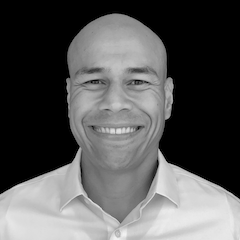
“Over the course of a year, 30% to 35% of professional athletes will meet the criteria for a mental health disorder,” said sports psychiatrist Jorge Aguilar, M.D., Ph.D.
And that’s where the new Sports Mental Health & Performance Institute, which he directs, comes in.
The institute, which opened at Montefiore Einstein Advanced Care – Westchester in Elmsford July 1, builds on Montefiore Health System’s affiliations with the New York Yankees and Major League Soccer’s New York City Football Club (FC), as well as Aguilar’s work as team psychiatrist for New York City FC and a consultant to Major League Baseball (MLB) in mental health and performance. (He also participates in the MLB Rookie Development Program, a joint program with the Major League Baseball Players Association (MLBPA) to assist minor league players transitioning to the major leagues. In addition, he is an assistant professor of psychiatry and behavioral sciences at Montefiore Einstein.)

But the institute is not just for the pros, Aguilar said: “We want to help athletes at all levels.” And that help has applications for the business world as well.
Indeed, athletes over age 13 can receive treatment for performance anxiety, recovery from injury and general mental health concerns in person or virtually. (The majority of athlete patients have preferred virtual sessions via MyChart.) There are also plans to add additional mental health practitioners and to offer training experiences for future psychiatrist and psychologist trainees at the institute to increase the standard of athlete mental health care in the community.
In a once predominantly macho culture that believed in gutting everything out and nice guys finishing last, mental health was not something you talked about. The story of Jimmy Piersall — the Waterbury, Connecticut-born and -reared centerfielder for the Boston Red Sox, whose struggle with bipolar disorder became the subject of the book and 1957 movie “Fear Strikes Out” – was the exception that in the old days proved the rule.
Not anymore. In recent years, Simone Biles, the most decorated gymnast in history, and former women’s tennis world No.1 Naomi Osaka have talked about their own mental health challenges. When Biles’ teammate Jordan Chiles unwittingly became embroiled in a controversy over a bronze medal finish in the floor exercises during the Paris Summer Olympics, she told heated fans that she was taking “a mental health break” from social media.
Do female athletes suffer more than male athletes psychologically in part because of the emphasis placed on the female body, particularly on social media, or are female athletes more likely to verbalize their challenges?
What the data shows, Aguilar said, is that male and female athletes alike struggle with mental health issues and, even more alarming, those struggles may be underreported. Access to help can be one problem. But the stigma of such a diagnosis remains one no one wants, particularly as professional athletes are not only performers in the sports arena but brands upon which many employees may rely for their livelihood.

It’s not just the pros who suffer, of course. Aguilar – who trained in pediatrics at the Children’s Hospital of Philadelphia and completed his psychiatry residency and child and adolescent psychiatry fellowship at Montefiore Medical Center in New York City – said that 70% of kids quit organized sports by age 13 due in large part to burnout and a lack of fun from specializing in a sport at too young an age and overuse injuries. In a third of cases, the turnoff can be laid at the feet of parents, coaches or both.
“There are horrific cases of abuse, producing trauma with a capital ‘T,’” he said. “But then there is small ‘t’ trauma, well-intentioned parents and coaches who are not aware of how their behavior affects young athletes.”
Winning may matter, he said, but not when the child is 4 or 5 years old. At that age, Aguilar added, it should be all about physical exercise, having fun and socializing with others. From ages 6 to 9, you learn to hone skills. After age 10, the child begins to understand the idea of competition. Not until high school, he said, should the student athlete be focused on winning.
Not that this will ensure collegiate and professional careers. Only 1% or 2% of student athletes will go on to play in the National Collegiate Athletic Association’s (NCAA) Division 1, he said. Less than 2% of NCAA athletes turn pro. The kids who will become great professional athletes, Aguilar added, are “rare and obvious,” and even those are not guaranteed long, successful careers.
Aguilar emphasized three points for parents and coaches of student athletes – fun, APE (attitude, praising the process and effort) and sportsmanship.
“Talk the talk and walk the walk,” he advised parents and coaches. Screaming and attacking opponents (and their parents) will leave an impression on kids of what is acceptable behavior.
“Kids will do as they see, not as they’re told,” Aguilar said.
As in the business world, he added, results in sports matter. How you set yourself up for excellence matters more.
“Focus on the process, less on the results. Focus on what is in your power to control rather than what is not. Something that helps is identifying the values you want to live by. Compile a list, such as, ‘I will be courageous. I will be resilient.’”
You may not be perfect in these. But, Aguilar said, by concentrating on the process and not the results, you will get the results you want as an athlete, a businessperson – and, most important, as a human being.






















